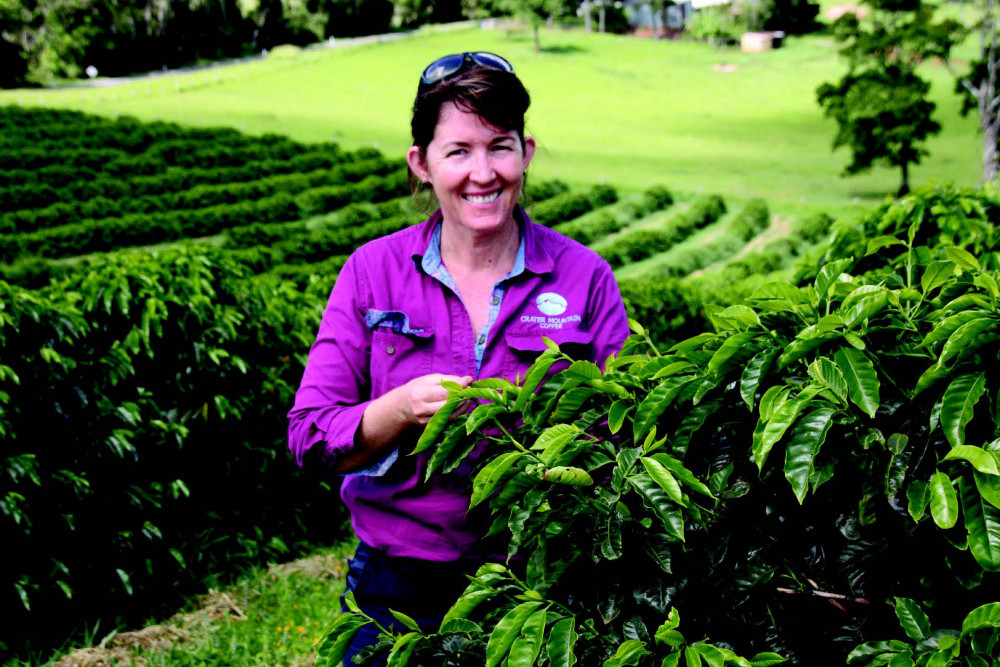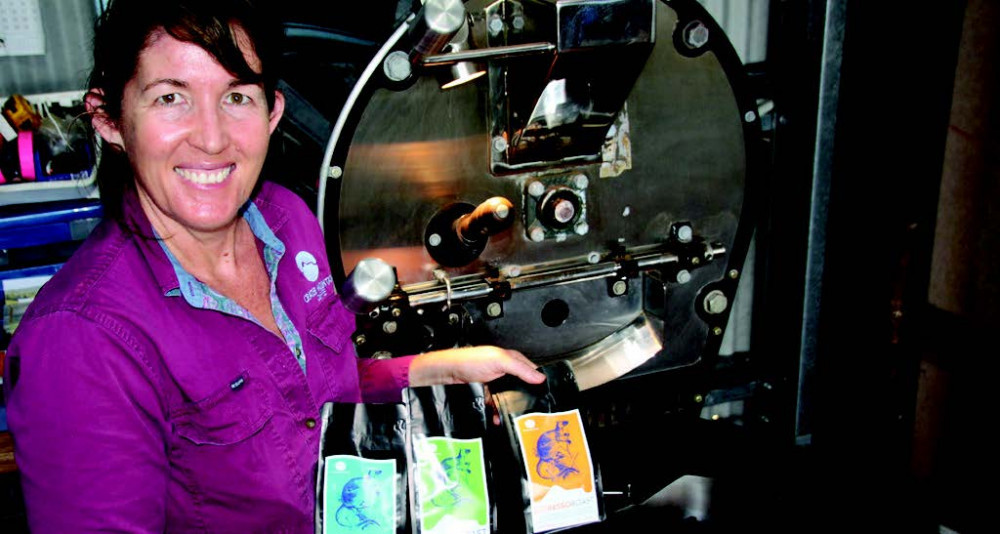On The Land
30 December, 2021
Award puts Crater Mountain Coffee on top of the world
LOCAL coffee producers Lucy Stocker and James Masterman of Crater Mountain Coffee, Upper Barron, are thrilled to have been awarded a bronze medal in the Filter category of the world’s largest coffee roasting competition, the “Golden Bean”, in their first year of commercial operation.

“To win this award, we had to put our coffee beans up for professional evaluation and blind tasting, against not only hundreds of Australian growers, but also against beans grown in the Panama Republic, Ethiopia and by the rest of the world’s best,” Lucy said.
“There was a $150 fee attached to each entry, and self-doubt almost stopped me, but I am so pleased that I put our product forward. This award confirms we are on the right track and totally validates all the work and money we have put into establishing our business over the last four years.
“The really exciting thing about winning the bronze, was that not only is this our first year of commercial sales, but I have another dozen fl avours in the pipeline, some of which I think, are actually better than the three I submitted this year.”
With a minimal margin available in the traditional model of selling green beans, Lucy knew she would have to move away from the commodity brand concept and sell specialty coffee direct to the consumer.
“It’s been a hard slog selling coffee 1kg at a time online, but I am determined to keep going this way,” she said.
In an ideal union between farming and technical expertise, Lucy has perfected growing and roasting the beans, while James, who works from home as a programmer has reduced her workload by designing remote water monitoring and irrigation systems, as well as computer monitored probes for the critical coffee roasting process.
“Roasting the beans takes a lot of practice and a batch can be ruined in seconds after a whole year of work in the paddock. We have been experimenting with using wine and champagne yeast in the fermentation process,” she said.
The yeast is combined with the beans before they are sealed inside olive barrels for up to 12 days of fermentation. They are then placed on racks and sun-dried for a month to develop the flavours before roasting.
The crop is completely hand harvested, sorted and processed during October/November and that process was made more difficult this year by COVID-19 induced staff shortages.

“We are always pursuing new product opportunities and in an exciting new collaboration, we have been supplying our coffee to the Wild River Mountain distillery where it undergoes a ‘cold drip concentration’ treatment, before being mixed with their hand crafted white rum to create a unique coffee liqueur,” Lucy said.
“Our product vision aligns with the ‘third wave of coffee’ connoisseurship, which is about delivering high quality coffee sourced from farms instead of countries, where roasting is about bringing out the unique characteristics of each bean, and the flavor is clean, hard and pure.
“Our coffee trees are practically pest free, so we do not use any insecticides or pesticides. Our crop is grown in a clean, clear environment and our beans are stored under optimal conditions.”
Lucy Stocker took the long way around to becoming a coffee producer. Growing up on a farm that produced some of the north’s first avocadoes, near the tiny town of Jaggan, she studied Mining Engineering at Wollongong University, before accepting a job in Western Australia.
She met her husband, fellow engineer, James in Tom Price and they stayed on and worked in the west for many years.
“We had seen coffee growing in the New Guinea highlands and were fairly confident it would do well on the elevated basalt soils of the family farm at Upper Barron,” she said.
Just over four years ago, Lucy approached the Department of Agriculture and Forestry which supplied 15 different varieties of trees to trial. They settled on the Spanish variety, ‘Catuai Rojo’, a lovely dense-leafed Arabica tree.
The cool, cloudy conditions of her parents’ property proved ideal for growing coffee and the thick foliage of the trees gave the beans the cover they needed to mature slowly over 10-11 months to produce the complexity of flavour Lucy was looking for.
“We planted the initial 7000 trees on the slopes of my pilot paddock near the house, where I could experiment with fertilising, irrigating and tree spacing. We applied a lot of dolomite and lime to correct the soil chemistry and I tried to make as many mistakes as I could there before planting the next 25,000 trees,” she said.
“We would love to see other farmers in the area give coffee a try. Established growers were extremely helpful when we started. They were all about collaboration and improving the reputation of Australian coffee and we would like to pass that on down the line,” she added.


